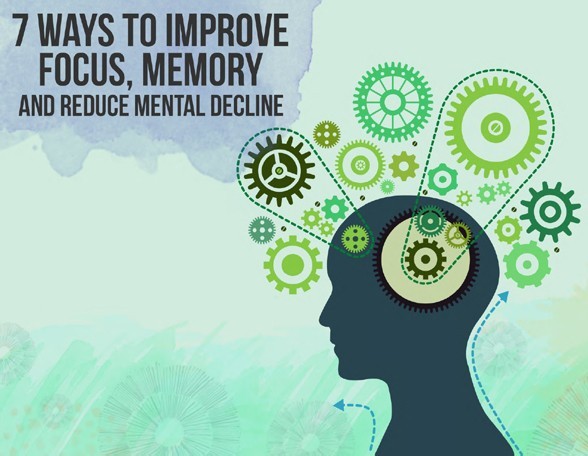Tone up your Brain
Category: Healthy Nutrition

For all the years I have followed a good diet, I never thought about how to tone up my brain. I studied about nutrition and how vitamins and minerals could keep my body healthy, but not about nutrition that could keep my brain healthy. I never thought about my brain being the key to good health.
One day, I came across an article about how the brain directs nutrition to every part of our bodies and without a healthy brain, our bodies start deteriorating because the nutrition traffic cop in our brains stops directing nutrition to every part of our body. I realized that I could eat a great diet and take lots of all natural supplements and still not be getting the nutrition to where it needs to go in my body.
I had a light bulb moment and started studying the health of my brain to keep it sharp and healthy enough to make sure my brain was directing the nutrition I was eating to the correct parts of my body.
Here is what I learned:
Title: The Neglected Connection: Understanding Brain Health’s Crucial Role in Overall Physical Well-being
Introduction:
When we think about physical well-being, our minds often go straight to factors like diet, exercise, and sleep. While these elements undoubtedly contribute to our overall health, it is crucial to recognize the often overlooked connection between brain health and physical well-being. Ignoring the brain’s role in nourishing the body can have detrimental effects on our overall health. In this blog post, we will explore the importance of prioritizing brain health, backed by research and real-life examples, and provide practical strategies for maintaining optimal cognitive function.
The Misconception of Physical vs. Brain Nutrition:
Many individuals tend to focus solely on eating a healthy diet to fuel their bodies without considering the brain’s central role in distributing nutrients throughout the body. The brain acts as a powerful command center, directing nutrition to different parts of the body based on their needs. Neglecting the importance of nourishing the brain can lead to a poorly functioning command center, which can wreak havoc on overall health.
Research-Backed Evidence:
Numerous studies have demonstrated the impact of a poorly functioning brain on physical well-being. For instance, a study published in the Journal of Neuroscience stated that a malnourished brain struggles to produce and utilize neurotransmitters, leading to cognitive decline and increased risk of mental health disorders. Another study published in the Journal of Nutrition found that cognitive decline is closely associated with an increased risk of developing chronic diseases such as diabetes, heart disease, and obesity.
The Nutrients Essential for Optimal Brain Health:
To support brain health and effective nutrition distribution, it is essential to incorporate specific nutrients into our diets. Omega-3 fatty acids, commonly found in fatty fish, nuts, and seeds, play a significant role in maintaining brain health. These fatty acids not only aid in cognitive function but also protect against age-related cognitive decline. Antioxidant-rich foods such as colorful fruits and vegetables combat oxidative stress, a major contributor to brain aging and neurodegenerative diseases.
Moreover, B-vitamins, found in whole grains, leafy greens, and legumes, are crucial for energy production in the brain. Adequate hydration is another often-neglected aspect that is vital for optimal brain health, as even mild dehydration can impair cognitive function.
Lifestyle Habits for Cognitive Well-being:
In addition to nutrition, certain lifestyle habits support brain health. Regular exercise has been proven to enhance cognitive abilities, improve memory, and reduce the risk of neurodegenerative diseases. Moreover, engaging in mentally stimulating activities, such as puzzles, reading, or learning a new skill, helps keep the brain active and reduces the risk of cognitive decline.
Real-Life Examples:
Consider the case of Mr. Smith, a 62-year-old individual who neglected his brain health while focusing solely on physical nutrition. Despite having a physically fit body, he struggled with memory issues, brain fog, and fatigue. After incorporating brain-boosting nutrients and lifestyle habits, such as regular exercise and mental stimulation, Mr. Smith reported significant improvements in his cognitive function, overall well-being, and quality of life.
Conclusion:
Maintaining brain health is not just about sharpening our mental acuity; it is about nourishing a key organ that orchestrates our entire physical well-being. Neglecting brain health can have a substantial impact on overall health and increase the risk of chronic diseases. By prioritizing specific nutrients, engaging in regular exercise, and adopting mentally stimulating habits, we can optimize brain health and, consequently, enhance our physical well-being. Let’s remember to give our brains the attention they deserve and make cognitive well-being an integral part of our overall health routine.

This is why I recommend reading this free ebook about the 7 Steps to Improve Focus, Memory and Reduce Mental Decline.



Facebook Comments